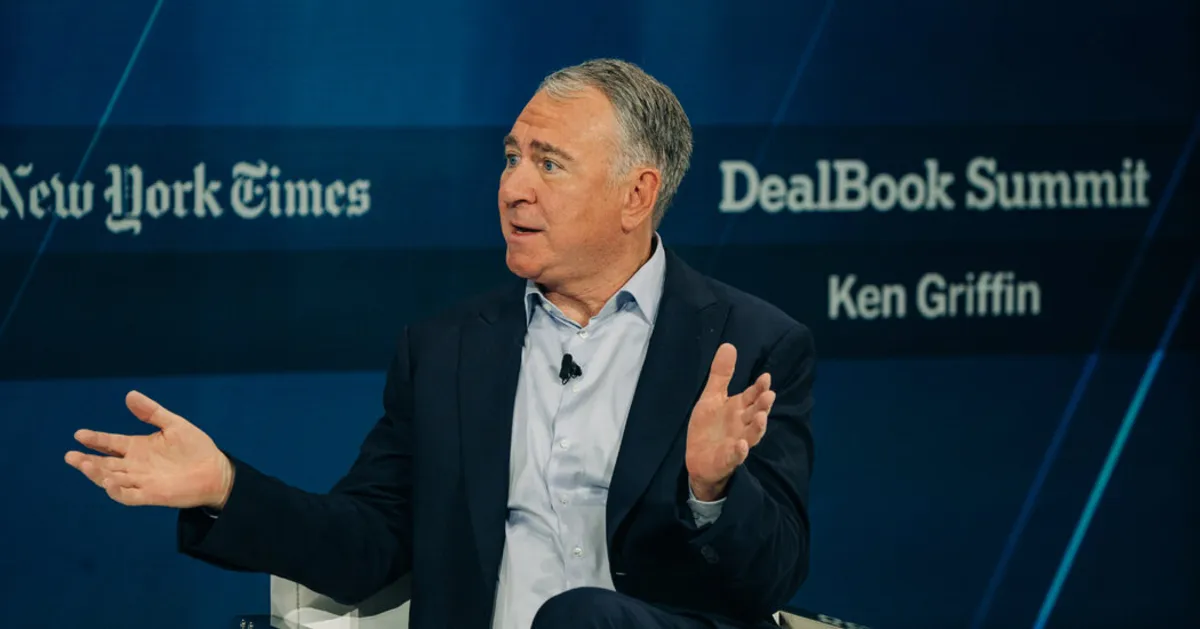
In a significant shift within the business community, Ken Griffin, the billionaire financier and C.E.O. of Citadel, has publicly criticized President Trump for his attempts to undermine the Federal Reserve's independence. This rare stance from a prominent Republican figure underscores the growing concern among economists and former Treasury secretaries regarding Trump's actions that may jeopardize investor confidence in U.S. financial institutions.
Despite widespread alarm among economists, business leaders have largely remained silent on Trump's aggressive tactics. However, Griffin, along with Anil Kashyap, a University of Chicago professor and advisor to the Chicago Fed, has broken that silence. In an opinion piece published in The Wall Street Journal, they express deep concern over Trump's "risky game" of pressuring the central bank to lower interest rates. They highlight the potential consequences of such actions, including Trump's attempts to dismiss a Federal Reserve governor and the head of the Bureau of Labor Statistics following disappointing job reports.
Griffin and Kashyap warn that these developments could lead to "steep costs" for the U.S. economy. They argue that Trump's actions could erode the credibility of the Federal Reserve, which, although built over decades, is not infinite. If this credibility is compromised, markets may react by demanding significantly higher interest rates for long-term debt, creating an adverse environment for corporate profits.
In their opinion piece, Griffin and Kashyap draw parallels between the current situation in the U.S. and experiences in emerging markets where political influence has led to diminished institutional credibility. They caution that undermining the Federal Reserve's independence could backfire on Trump, potentially resulting in increased inflation and elevated long-term interest rates. This scenario would pose another challenge for corporate profitability in an already complex economic landscape.
This critique marks a notable departure for Griffin, who, despite having voted for Trump in the past, has not hesitated to voice his disapproval of specific actions taken by the president. As the business world grapples with the implications of Trump's policies, Griffin's bold stance may encourage other leaders to reconsider their silence on critical issues affecting the economy.
In addition to Griffin’s critique, the article also touches on a new proposal by Treasury Secretary Scott Bessent aimed at narrowing the central bank’s remit. This proposal emphasizes the ongoing debates surrounding the role and responsibilities of the Federal Reserve in the current economic climate.
The article also highlights a new report revealing JPMorgan Chase's connections with Jeffrey Epstein, adding another layer of complexity to the ongoing discussions about corporate governance and ethical practices in major financial institutions.
Finally, don’t miss our Picture of the Day featuring the U.S. Open men’s championship match along with notable attendees in Rolex's corporate suite, including President Trump. This visual highlights the intersection of sports, business, and politics, capturing the attention of audiences nationwide.
As the economic landscape continues to evolve, the implications of political actions on financial institutions remain a critical topic of discussion. Griffin's outspoken critique may signal a turning point in how business leaders approach their relationship with governmental policies, particularly concerning the Federal Reserve.